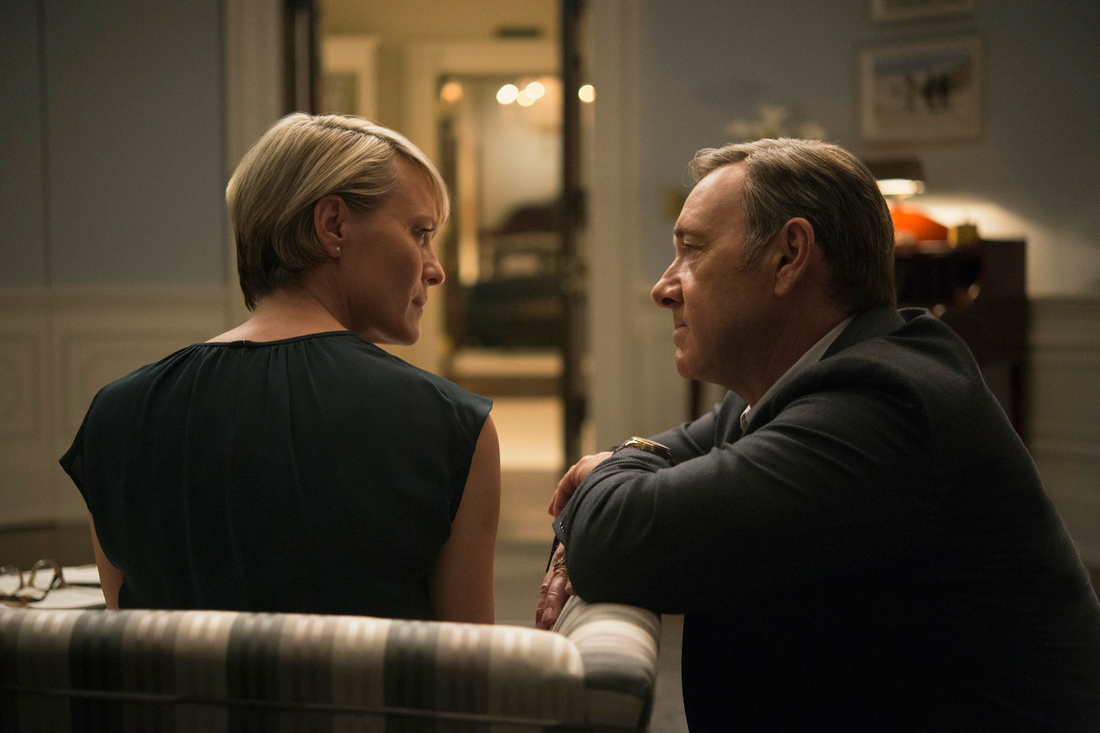Maybe you dedicated this weekend to frantically binge-watching the new season of House of Cards on Netflix. Or maybe you spent the weekend avoiding Twitter for fear of having House of Cards spoiled. Or maybe you don’t care about House of Cards at all. But even if that’s the case, there has probably been a time where somebody ruined the ending of a movie or TV show that you were planning to watch. And it was probably pretty aggravating. But while spoilers are annoying, they’re also an unavoidable – and even more so now that social media gives people the platform to share their instant reaction to everything as it’s happening. The internet can sometimes seem like a spoiler minefield. However, I’d like to argue that spoilers actually aren’t such a big deal. And short films are a great example as to why.
While I personally think that it’s generally ideal to go into a movie know as little about it as possible, it doesn’t mean that knowing more (or even virtually everything) about a movie ruins the experience. Even the most plot-driven thrillers should have much more to offer than just a few main story points. That’s why good movies still hold up on a second viewing, even after you know how everything plays out. It’s also why movies based on famous real-life events like Apollo 13 or Zero Dark Thirty can still be exciting and worthwhile films, even though virtually every viewer goes into it knowing what will happen.
A lot of the pleasure of a good movie can come not from finding out what ultimately happens, but in the viewing experience you have getting to that point. Many short films illustrate this perfectly, since they work on a compacted timeline. Sometimes the plot synopsis of a short film tells you the bulk of what will happen in the film, but because of the format, no one would really claim that to be a “spoiler”. In a lot of cases, it’s more about the way the story is told – through sharp writing, evocative acting, dynamic cinematography, etc. – rather than the story itself.
So why is it any different in a feature-length film or a television series? Is it because we invest so much more time into watching six seasons of The Sopranos than we do into watching an 11-minute short film? Probably. And maybe that’s fair, since there is more room to develop storylines and ensure that the audience gets attached to the characters. But by focussing solely on the ultimate conclusion of a film or TV series, it seems to me like that actually undermines all of the craft that goes into making that final punch have the impact it does.
Someone could say that they don’t need to watch The Assassination of Jesse James by the Coward Robert Ford because the title of the movie already tells them how it ends. But, as is obvious to anyone who has seen the movie, that’s not really what it’s about. And I think that’s the case with a lot of movies. To boil them down to who dies, who falls in love with who, and who turns out to secretly be the bad guy is to miss the point. No matter the format – a short film, a feature, or a series – we should take the piece as a whole. Not just cherry pick the flashy bits as the only parts that matter.
-Colleen
While I personally think that it’s generally ideal to go into a movie know as little about it as possible, it doesn’t mean that knowing more (or even virtually everything) about a movie ruins the experience. Even the most plot-driven thrillers should have much more to offer than just a few main story points. That’s why good movies still hold up on a second viewing, even after you know how everything plays out. It’s also why movies based on famous real-life events like Apollo 13 or Zero Dark Thirty can still be exciting and worthwhile films, even though virtually every viewer goes into it knowing what will happen.
A lot of the pleasure of a good movie can come not from finding out what ultimately happens, but in the viewing experience you have getting to that point. Many short films illustrate this perfectly, since they work on a compacted timeline. Sometimes the plot synopsis of a short film tells you the bulk of what will happen in the film, but because of the format, no one would really claim that to be a “spoiler”. In a lot of cases, it’s more about the way the story is told – through sharp writing, evocative acting, dynamic cinematography, etc. – rather than the story itself.
So why is it any different in a feature-length film or a television series? Is it because we invest so much more time into watching six seasons of The Sopranos than we do into watching an 11-minute short film? Probably. And maybe that’s fair, since there is more room to develop storylines and ensure that the audience gets attached to the characters. But by focussing solely on the ultimate conclusion of a film or TV series, it seems to me like that actually undermines all of the craft that goes into making that final punch have the impact it does.
Someone could say that they don’t need to watch The Assassination of Jesse James by the Coward Robert Ford because the title of the movie already tells them how it ends. But, as is obvious to anyone who has seen the movie, that’s not really what it’s about. And I think that’s the case with a lot of movies. To boil them down to who dies, who falls in love with who, and who turns out to secretly be the bad guy is to miss the point. No matter the format – a short film, a feature, or a series – we should take the piece as a whole. Not just cherry pick the flashy bits as the only parts that matter.
-Colleen


 RSS Feed
RSS Feed